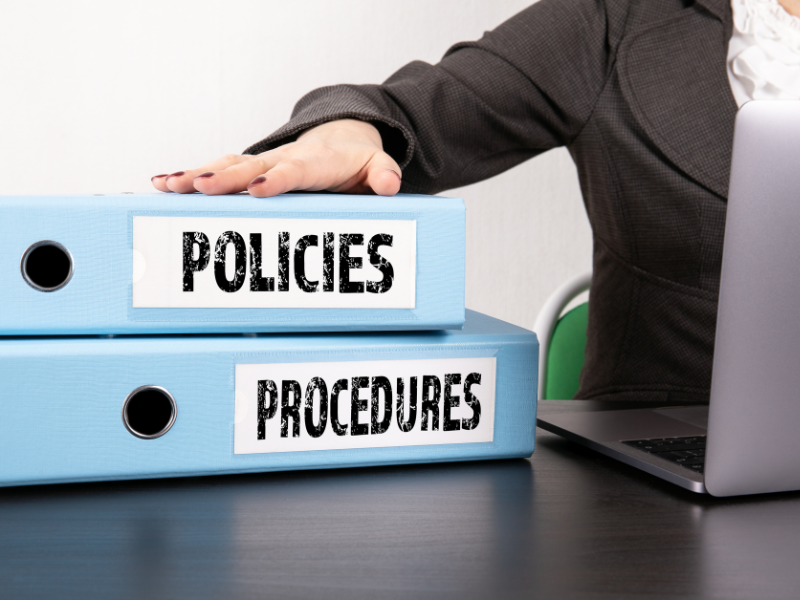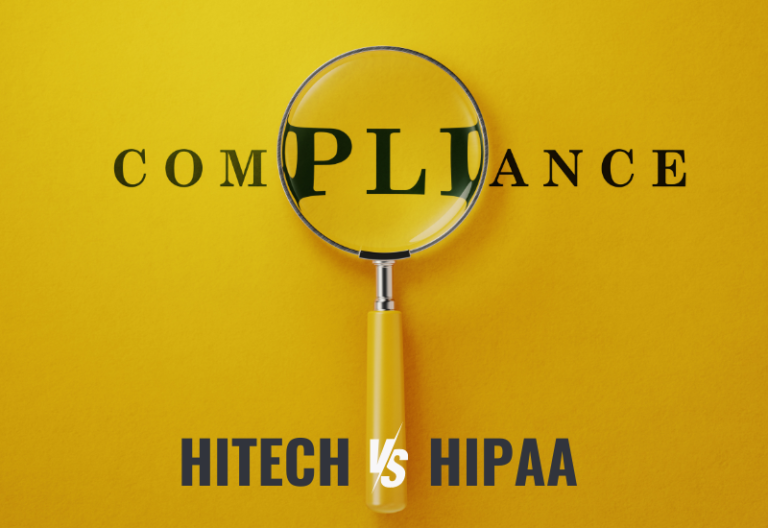Administrative safeguards play a critical role in protecting sensitive patient health information from unauthorized disclosure and breaches. In particular, the Security Rule of the Health Insurance Portability and Accountability Act (HIPAA) of 1996 details the specific requirements for establishing these safeguards.
This guide provides a general overview of HIPAA administrative safeguards and how covered entities can implement them effectively to ensure compliance with the Security Rule.
Table of Contents

Understanding Administrative Safeguards for HIPAA Compliance
What are HIPAA administrative safeguards?
The HIPAA Security Rule was introduced to safeguard patients’ electronic health information. More than half of the Security Rule details administrative safeguards, the set of policies, procedures, and practices designed to ensure the proper management of healthcare data. The rule also states guidelines for managing the conduct of the covered entity’s workforce concerning the protection and privacy of electronically protected health information (ePHI).
Read: What are the 3 Essential Safeguards for HIPAA Compliance?
Why are HIPAA administrative safeguards important?
Together with HIPAA physical safeguards and technical safeguards, HIPAA administrative safeguards exist to protect ePHI. With increasing digitization, healthcare organizations face the pressing challenges of cyber threats. Administrative safeguards ensure that covered entities’ workforce has a clear set of policies and procedures to follow to maintain the privacy, confidentiality, security, and accessibility of patient data.
Who is responsible for implementing HIPAA administrative safeguards?
Administrative safeguards are not the sole responsibility of one individual or department. Instead, implementing them requires a collaborative effort. The organization, from senior management to frontline staff, must implement these safeguards to protect ePHI and comply with relevant regulations.
Appointed staff (called the HIPAA Compliance Officer, Information Security Officer, or Privacy Officer) oversee, design, and enforce these safeguards. Their efforts in ensuring compliance require the support of the organization’s IT Department, Human Resources Department, training teams, and the respective department managers to ensure everyone understands and adheres to HIPAA administrative standards.

HIPAA Administrative Safeguards Checklist
The HIPAA Security Series outlines the following Security Standards under HIPAA Administrative Safeguards:
Security management process
Covered entities must “implement policies and procedures to prevent, detect, contain and correct security violations.” A well-defined security management process includes risk analysis, risk management, sanction policy, and information system activity review. These processes assess potential risks, identify and implement security measures to reduce these risks, and sanction workforce members who fail to comply with security policies and procedures. Covered entities should also review audit logs, access reports, and security incident tracking reports.
Assigned security responsibility
Covered entities must designate a security official to develop and implement administrative safeguards in the organization.
Workforce security
This standard ensures that only authorized staff have appropriate access to ePHI based on their role. It also prevents unauthorized access to ePHI. Covered entities should implement procedures to authorize and supervise staff who access ePHI. They should also enforce policies to terminate access when an employee’s role changes or during the end of their employment.
Information access management
Closely related to Workforce Security, this standard ensures access to only authorized staff. If a healthcare clearinghouse is part of a larger organization, its ePHI should be protected from unauthorized access by the larger organization. Covered entities should also have a process to grant access only to authorized staff.
Security awareness and training
Healthcare facilities and other covered entities must provide ongoing security training to their workforce. They should also issue periodic security reminders, implement procedures to protect their data against malicious software and educate employees on proper monitoring and password management.
Security incident procedures
Covered entities must develop a well-defined plan to address security incidents. Employees must have adequate awareness and knowledge of handling security incidents, including preserving evidence, notifying relevant parties, assessing risks, and documenting the incident’s outcome.
Contingency plan
Covered entities must have procedures in place to ensure the availability of EPHI during emergencies or disruptions. This includes data backup plans, disaster recovery plans to restore lost data, emergency mode operation plans to continue critical business processes during disruptions, and the regular testing and revision of these plans.
Evaluation
The need for periodic evaluations to assess the effectiveness of their security measures is a must. Covered entities and their business associates should document the results, analyze their findings, and implement improvements to ensure ongoing compliance.
Business associate contracts and other arrangements
Covered entities should have a written agreement with business associates that handle ePHI on their behalf. These contracts ensure that business associates are accountable for protecting ePHI.

Best Practices for Implementing HIPAA Administrative Safeguards
- Delegate security responsibility: Appoint a designated security officer to ensure the workforce follows security policies and procedures.
- Develop and document policies and procedures: Use HIPAA Rules as the standard in developing policies and procedures to safeguard ePHI.
- Conduct a risk assessment: Regularly assess security risks to prioritize safeguard implementation effectively.
- Provide ongoing training and education: Educate staff and stay updated on current federal and state laws protecting ePHI.
- Implement and review access controls: Implement methods to grant access only to authorized personnel. Conduct regular reviews to ensure that employees who have left no longer have access to ePHI.
Consequences of Non-Compliance With HIPAA Administrative Safeguards
- Fines and Penalties: Non-compliance can lead to substantial monetary penalties, ranging from thousands to millions of dollars, depending on the severity of the breach.
- Reputational Damage: Data breaches and security incidents can irreparably damage an entity’s reputation, eroding patient and stakeholder trust.
- Loss of Patients and Business: Patients may seek care elsewhere, causing financial losses.
- Legal Action: Non-compliance opens the door to legal action from affected clients, regulatory authorities, and other entities.
Comply With HIPAA Administrative Safeguards
Administrative safeguards under HIPAA are crucial to protecting ePHI. By implementing these safeguards and adopting best practices, covered entities can ensure compliance with HIPAA regulations.
Investing in robust administrative security solutions to monitor and control access to ePHI can help prevent breaches, minimizing the risk of non-compliance and potential legal consequences.







